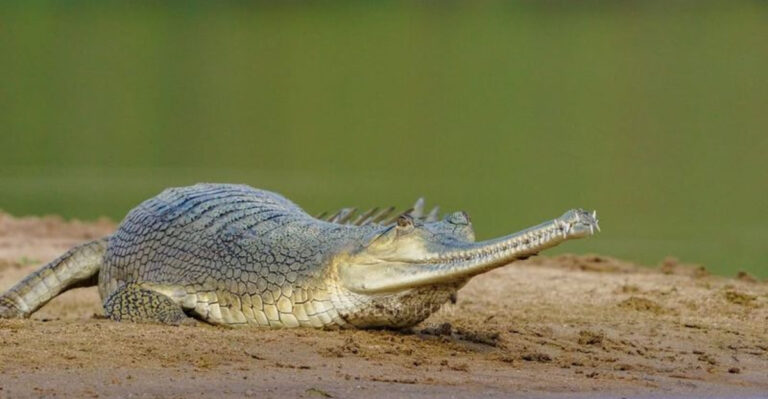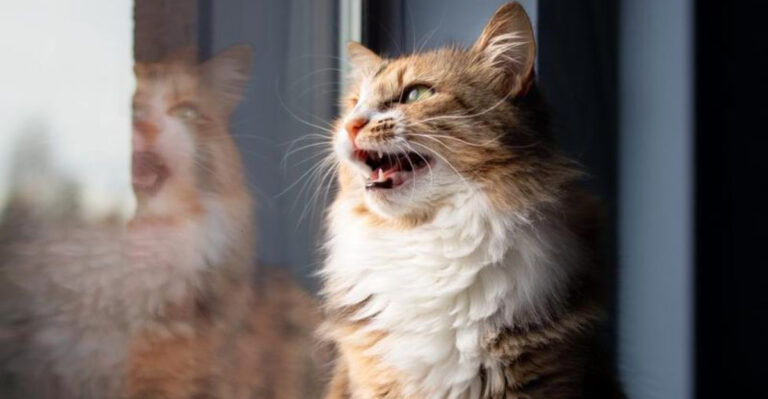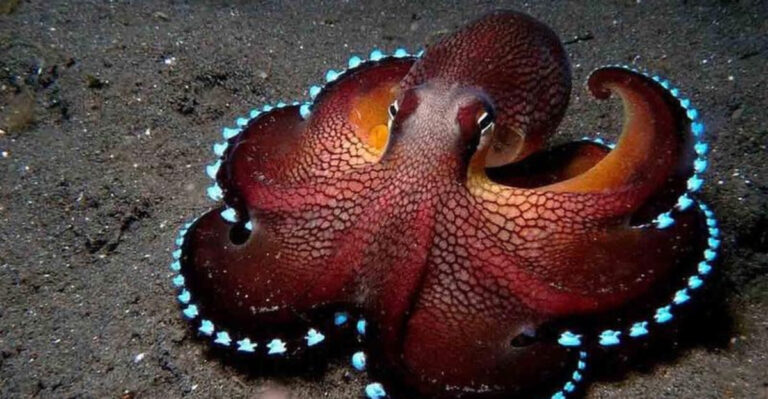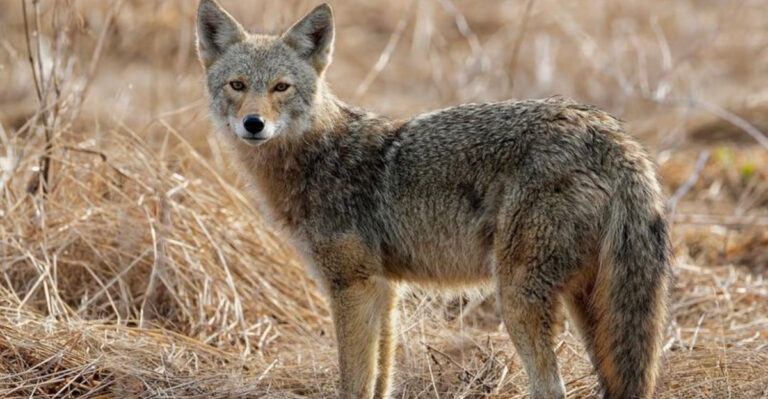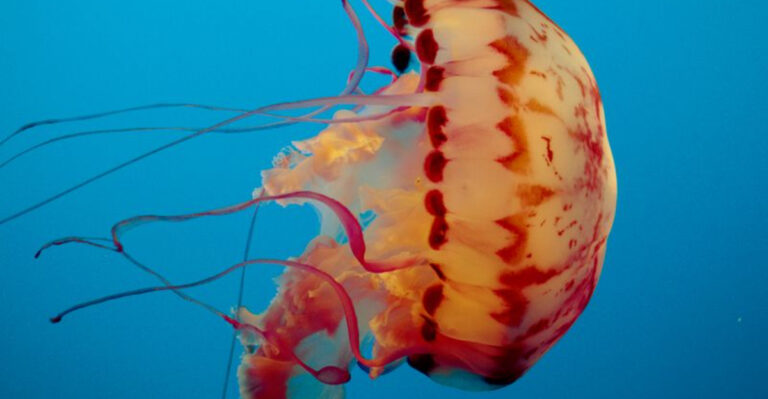16 Cat Breeds With The Highest Risk Of Genetic Problems
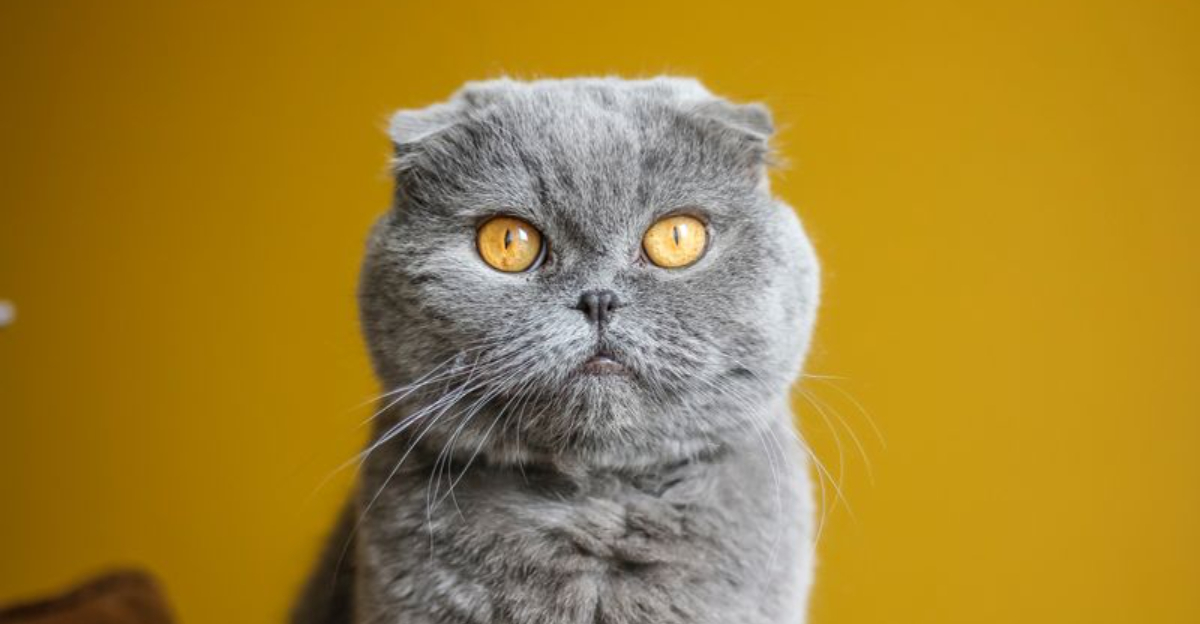
Cats come in all shapes and sizes, each with unique traits that make them lovable companions. However, some breeds carry a higher risk of genetic problems that can affect their health.
These genetic issues can lead to various health challenges that might require extra care and attention from their owners. Let’s explore these cat breeds and learn about the genetic factors that could impact their lives.
1. Persian Cat
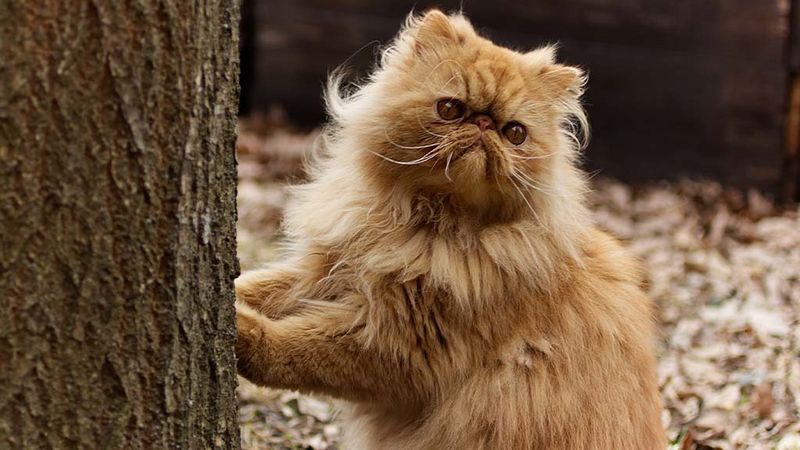
With a face as flat as a pancake, the Persian cat is a real showstopper. However, its distinctive looks come with a price. These cats are prone to a genetic condition called brachycephalic airway syndrome, which can make breathing a chore.
Their stunning coats require daily grooming to prevent mats and tangles. Persians are also predisposed to polycystic kidney disease, affecting their kidney function over time.
2. Maine Coon
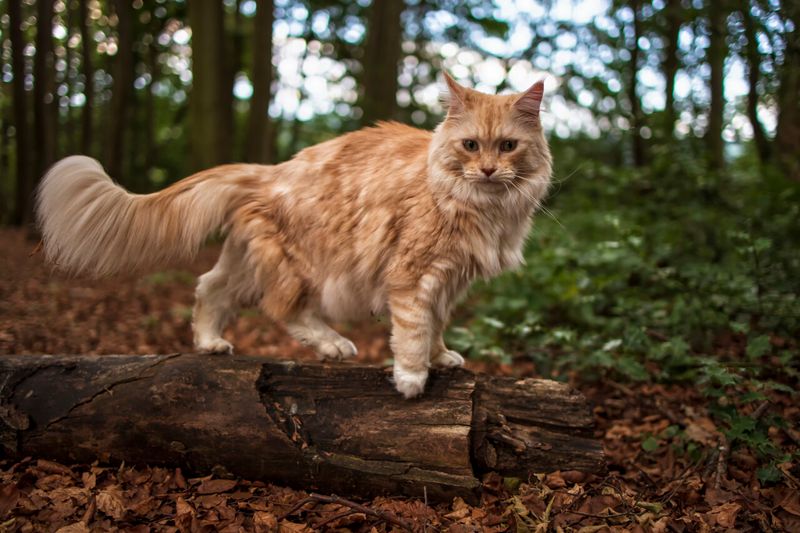
Known as the gentle giants of the cat world, Maine Coons are not just about their size. They have a higher risk of hypertrophic cardiomyopathy, a heart condition that can lead to heart failure.
Despite their wild appearance, these cats are affectionate and love water, often seen playing with their water bowls. Regular vet check-ups are crucial to monitor their heart health.
3. Scottish Fold
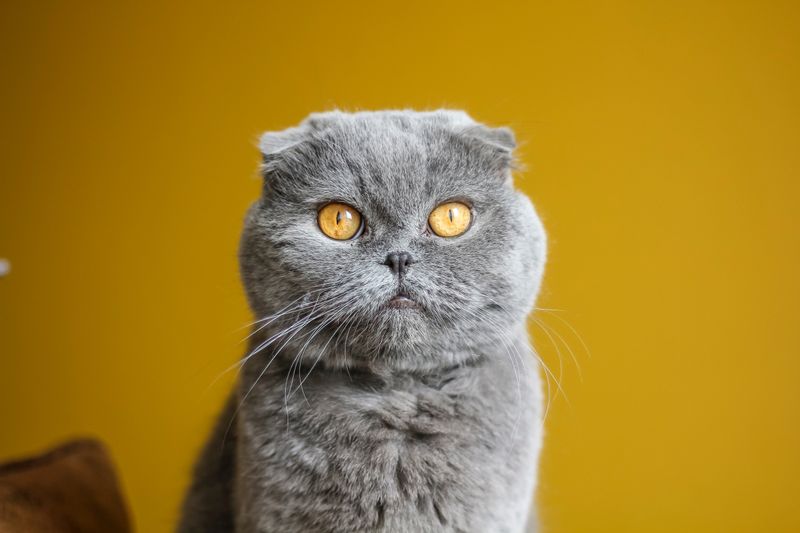
Those adorable folded ears of the Scottish Fold aren’t just for show. They result from a genetic mutation that can lead to a painful condition known as osteochondrodysplasia, affecting their cartilage and bone development.
These cats are otherwise charming and playful, making them popular pets. Owners should be vigilant for any signs of lameness or discomfort in their furry friends.
4. Sphynx
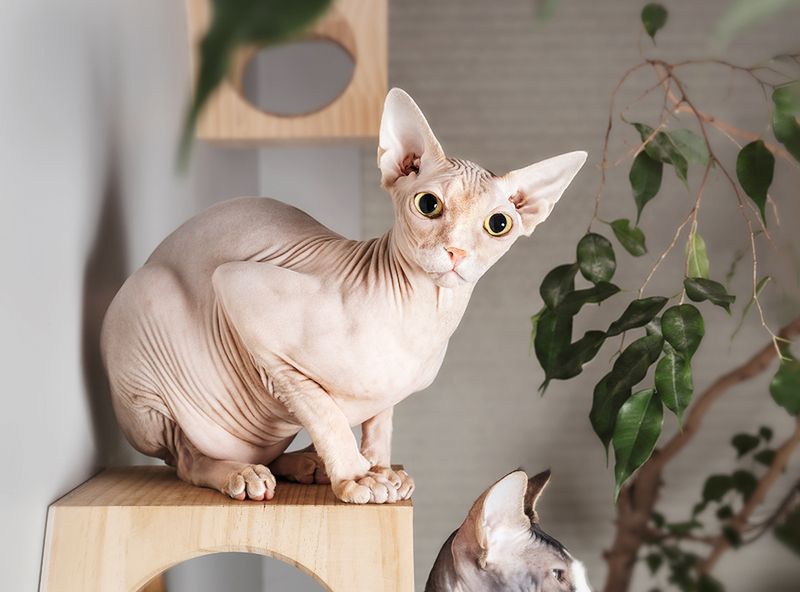
The Sphynx, with its lack of fur, is a cat that’s as unique as it is affectionate. But without a protective coat, they are susceptible to skin conditions and temperature sensitivity.
They are known for their extroverted behavior and love human attention. Regular baths are necessary to remove oil buildup on their skin, and owners should protect them from extreme temperatures.
5. Bengal Cat
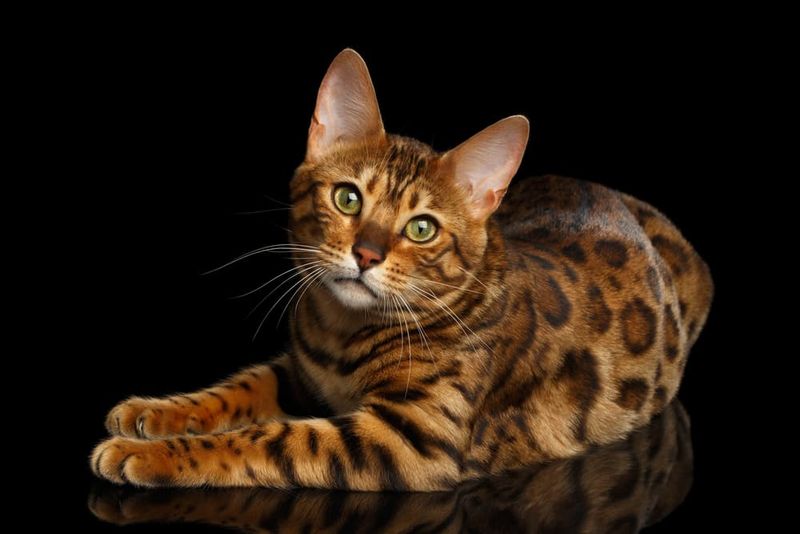
Bengal cats might look like tiny leopards, but they carry the burden of genetic issues like progressive retinal atrophy, which can lead to blindness.
Their high energy levels and need for stimulation make them demanding pets. Providing plenty of climbing opportunities and engaging toys can keep their active minds and bodies healthy. Regular eye check-ups are advisable for these feline adventurers.
6. Ragdoll
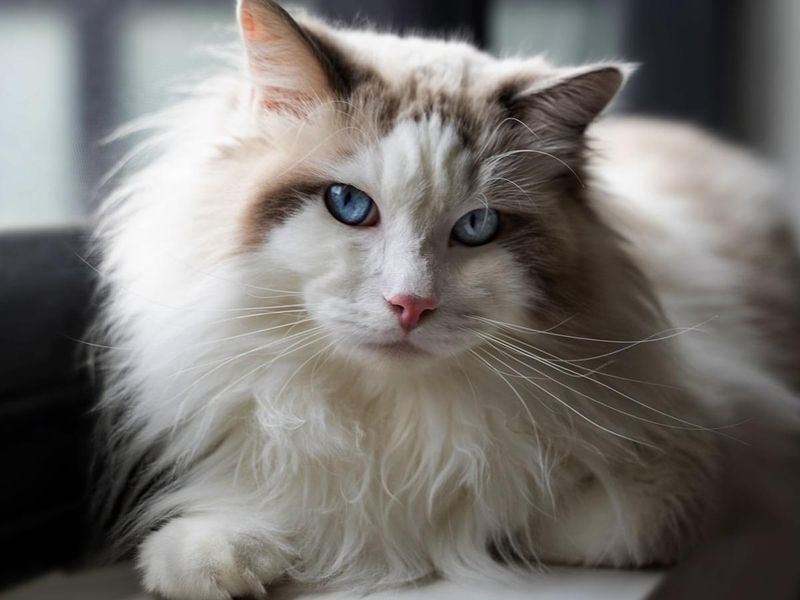
With a name as comforting as a child’s toy, Ragdolls are known for their docile nature. However, this breed is prone to hypertrophic cardiomyopathy, which affects the heart’s ability to pump blood effectively.
Despite their health concerns, Ragdolls are affectionate and love companionship. They thrive in calm environments where they can relax and bond with their human family.
7. Burmese
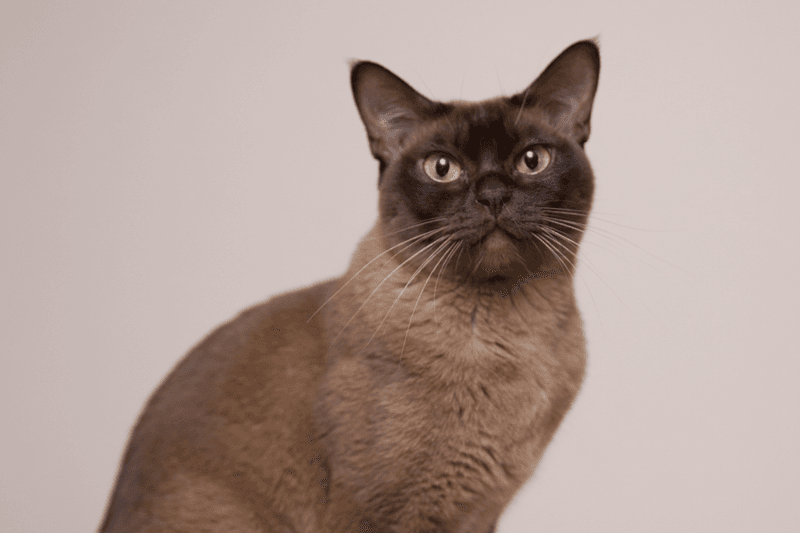
Burmese cats are as lively as a feline can get, but they face genetic challenges like craniofacial defects. These defects can affect their skull and nasal passages, causing breathing issues.
Known for their dog-like loyalty, Burmese cats enjoy interactive play and human interaction. Regular vet visits are essential to keep tabs on their respiratory health and ensure they live a full, active life.
8. Devon Rex
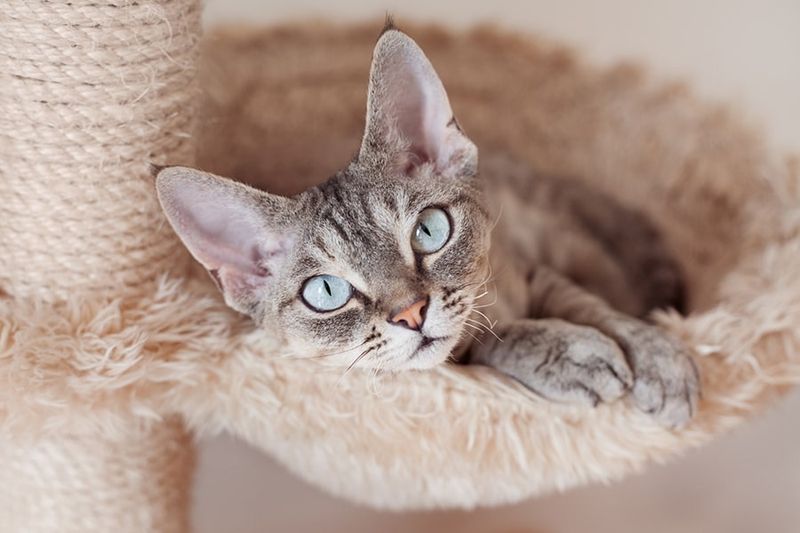
Sporting a coat as soft as velvet and ears that seem too large for their heads, Devon Rex cats have a playful spirit. Yet, they are prone to hereditary baldness and skin issues.
Their striking appearance and friendly nature make them wonderful companions. Regular grooming and skin care are crucial to keep their skin healthy, and owners should watch for any skin abnormalities.
9. Himalayan
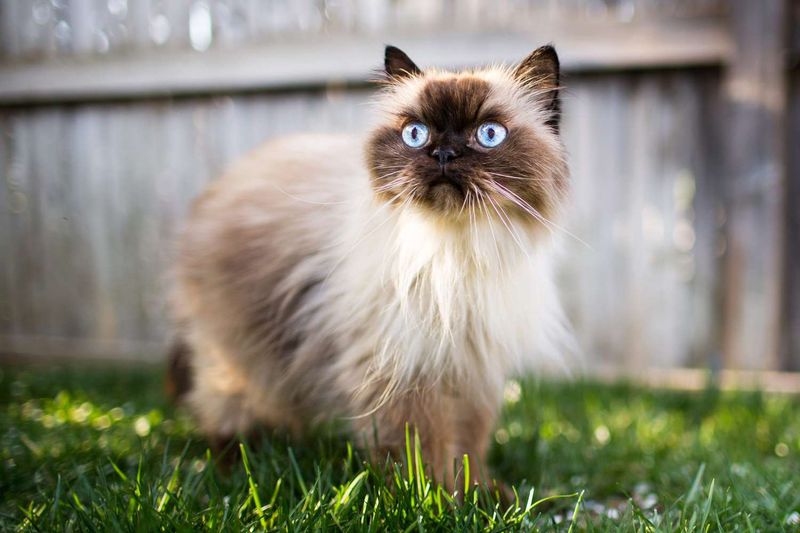
Himalayans, a cross between Persians and Siamese, inherit genetic issues from both breeds. They’re susceptible to polycystic kidney disease and respiratory problems due to their flat faces.
Despite these challenges, their loving nature and striking appearance make them favorites among feline aficionados. Regular health screenings and a comfortable environment are key to their well-being.
10. British Shorthair
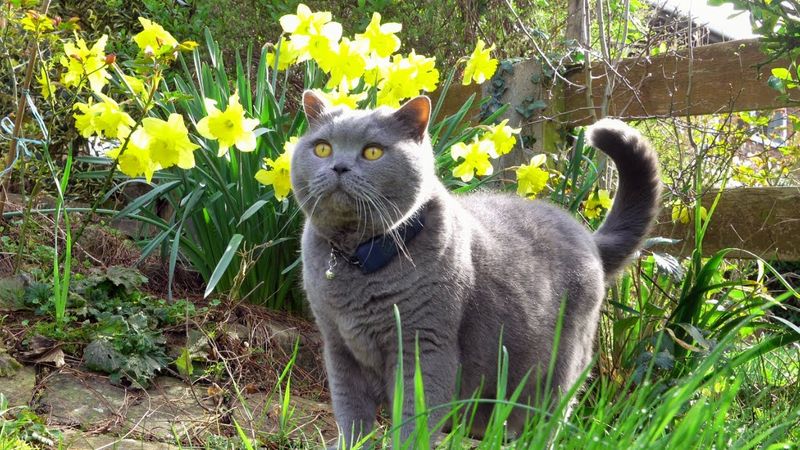
With their chubby cheeks and plush coats, British Shorthairs are as huggable as teddy bears. However, they can suffer from gingivitis and hypertrophic cardiomyopathy. These cats enjoy a laid-back lifestyle and are quite independent.
Regular dental care and heart monitoring are important to maintain their health. Their easygoing nature makes them ideal companions for families and singles alike.
11. Oriental Shorthair
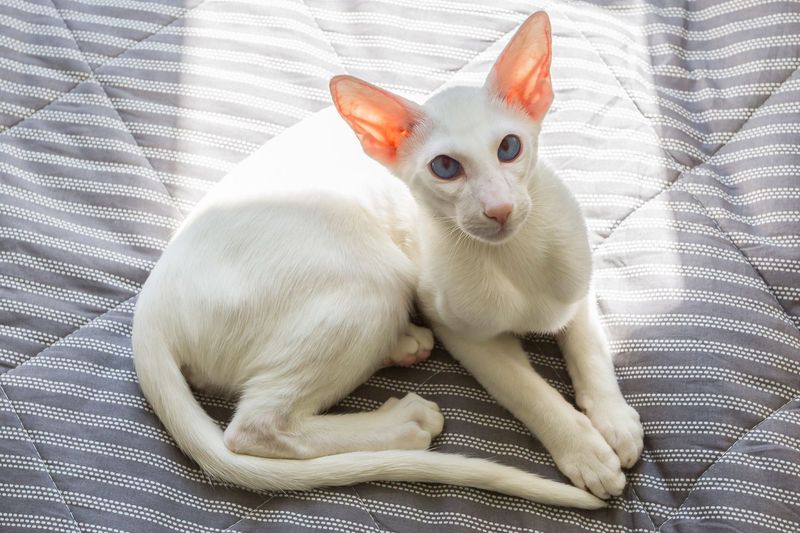
Oriental Shorthairs look like they stepped out of an ancient Egyptian mural, with their lean bodies and large ears. But this breed is prone to dental issues and respiratory problems.
Their vocal nature means they’ll let you know if something’s not right. Regular dental check-ups and a healthy diet are crucial for these cats, who thrive on human interaction and a stimulating environment.
12. Abyssinian
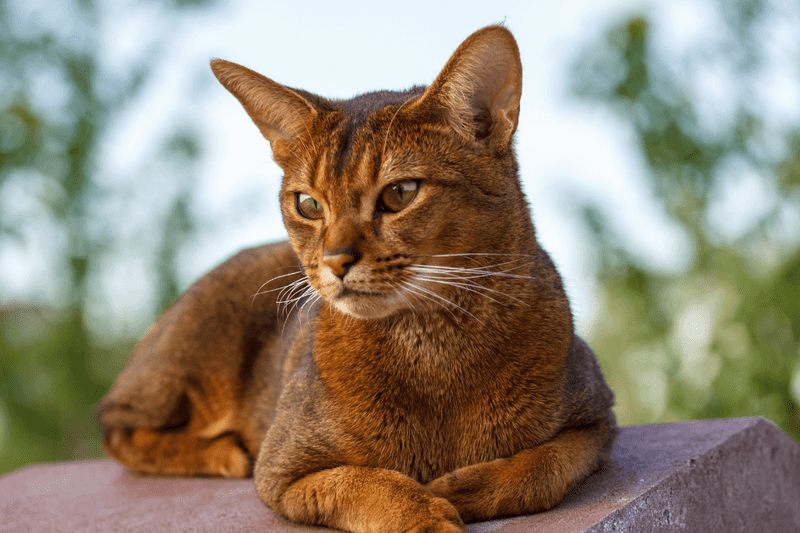
Abyssinians are energetic explorers with a ticked coat that seems to shimmer in the sunlight. They are prone to gingivitis and renal amyloidosis, which can affect their kidney health.
These cats love to climb and explore every nook and cranny. Providing plenty of playtime and a balanced diet can help manage their health risks while keeping them entertained and happy.
13. Burmilla
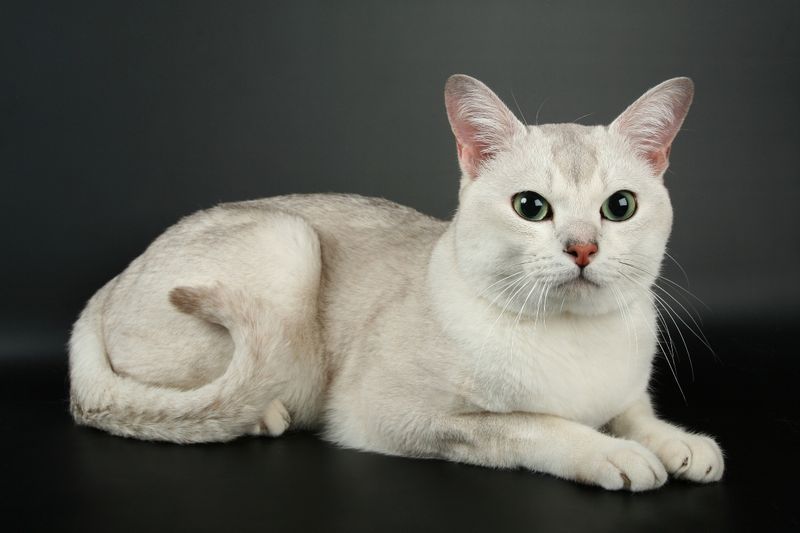
With coats that glisten like moonlight, Burmillas are a sight to behold. However, they can inherit polycystic kidney disease, which affects kidney function.
These cats blend the best of Burmese and Chinchilla traits, offering both beauty and affectionate companionship. Regular vet check-ups and a balanced diet are vital to keeping these gorgeous cats healthy and thriving.
14. Turkish Van
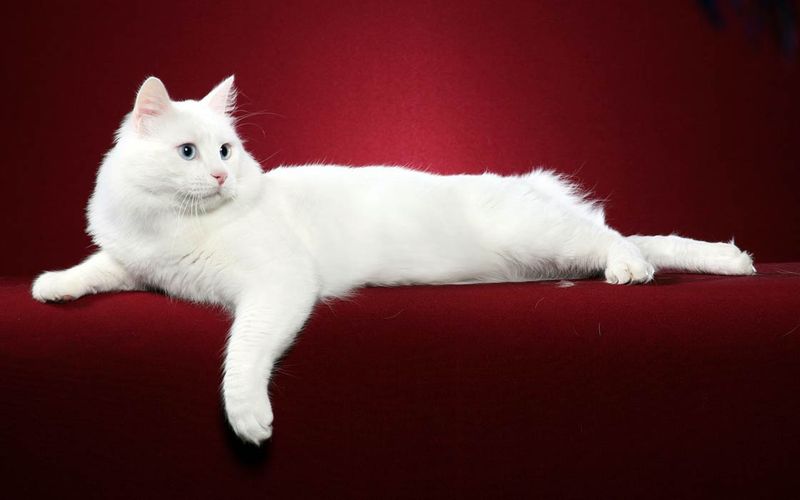
Turkish Vans are known for their love of water and distinctive coats. But they can be at risk for hypertrophic cardiomyopathy, affecting their heart health. These cats are active and mischievous, often seen splashing in water or climbing high places.
Regular exercise and heart screenings are important to ensure they lead a healthy life. Their playful antics make them delightful pets.
15. Chartreux
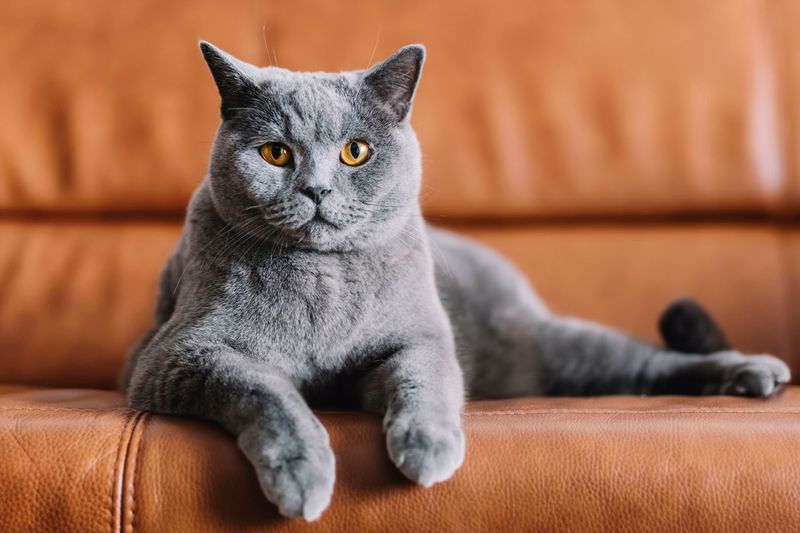
Chartreux cats, with their blue-grey coats, are as enigmatic as they are charming. They can suffer from patellar luxation, a condition affecting their knees.
These cats are known for their silent meows and affectionate nature. Providing a safe environment and regular vet check-ups can help manage their health. Their quiet demeanor and soft, plush coats make them irresistible companions.
16. Siamese
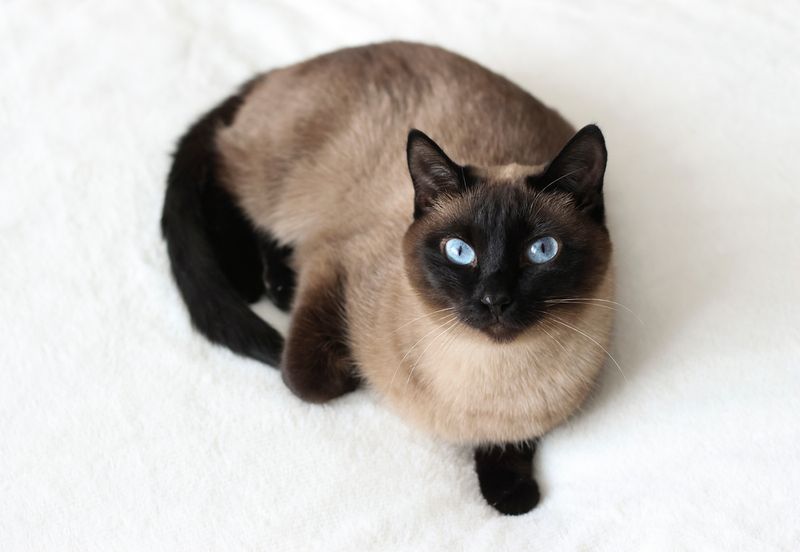
Siamese cats might steal your heart with their striking looks, but they have a genetic predisposition to respiratory issues and dental problems. Their vocal nature and need for attention make them engaging pets.
Regular health check-ups and dental care are essential to keep these sociable cats purring happily. Their sharp minds and affectionate nature mean they’re always up for a chat.

